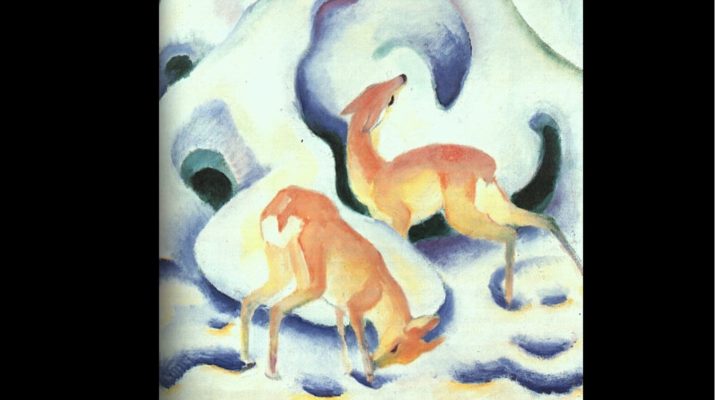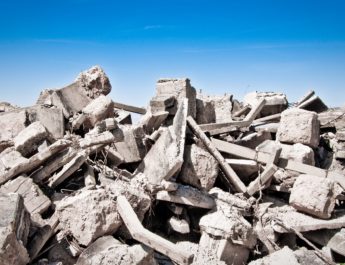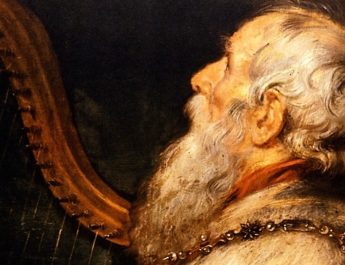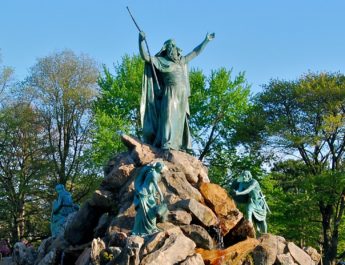Psalm 42:1-3
Narrative Lectionary 424
To the leader.A A MaskilB of the Korahites.C
A “leader” = natsach. Properly, something that glitters from a distance. So, something that stands out, excels, has status/standing (such as a chief musician or superintendent of Temple services). This can also mean to be permanent or enduring.
B “Maskil” = maskiyl. 13x in OT. From sakal (to consider or be prudent; to instruct, be an expert; dealing prudently, which implies success and prospering; can mean laying cross-wise). This is maskil or maschil. It is a poem used for instruction.
C “Korahites” = ben + Qorah. Literally “sons of Korah.” Ben is son, age, child. It is son in a literal or figurative sense. Qorah is from qarach (to shave bald, perhaps frozen). This is Korah, perhaps meaning “bald” or “ice.”
1 As a deerD longsE for flowingF streams,G
so my soulH longs for you, O God.I
D “deer” = ayyal. 11x in OT. From the same as ulam (porch, hall); from the same as ul (mighty, strength, body, belly; root may mean to twist and that implies strength and power); from alam (to bind or tie fast; to be silent or speechless, whether voluntary or involuntary) or from ayil (strength; things that are strong or powerful: political chiefs, rams, posts, trees, oaks). This is deer, hart. It can symbolize leaping, looking for pasture or sustenance. It can also be used to refer to princes.
E “longs” = arag. 3x in OT – 2x in Psalm 42 & 1x in Joel 1 of wild animals crying out to God when their water sources dry up. This is panting, longing, or crying.
F “flowing” = aphiq. 19x in OT. From aphaq (to be strong, force, control, hold). This is a channel, brook, stream, tube, river. It is something that contains so it is a tube or valley where a stream is. It can also be something strong or a hero.
G “streams” = mayim. This is water, waters, or waterway in a general sense. Figuratively, it can also mean juice, urine, or semen.
H “soul” = nephesh. Related to naphash (to refresh or be refreshed). This is soul, self, person, emotion. It is a breathing creature. Can also refer to appetites and desires.
I “God” = Elohim.
2 My soul thirstsJ for God,
for the livingK God.L
J “thirsts” = tsame. 10x in OT. This is to thirst in a literal or figurative sense.
K “living” = chay. From chayah (to live or keep alive literally or figuratively). This is alive, living, lifetime. It can also be used to describe someone’s age. It can refer to animals, plants, water, or a company or congregation of people. It is life in a very broad sense.
L “God” = El. Related to “God” in v2. See note I above.
When shall I come and beholdM
the faceN of God?O
M “behold” = raah. This is to see in a literal or figurative sense so stare, advise, think, view.
N “face” = paneh. From panah (to turn, face, appear). This is face in a literal or figurative sense. It could be face, presence, anger, respect. It can also be used of God to indicate divine favor or presence.
O “God” = Elohim. Same as “God” in v2. See note I above.
3 My tearsP have been my foodQ
day and night,R
while people say to me continually,S
“Where is your God?”T
P “tears” = dimah. From dema (juice, liquor); from dama (to weep). This is tears from weeping.
Q “food” = lechem. From lacham (to eat, feed on). This is bread, food, loaf. It can refer to food more generally for people or for animals.
R “night” = layil. Properly, this refers to light twisting away. It is used for night or midnight. Figuratively, this can mean adversity.
S “continually” = kol + yom. Literally “all day.”
T “God” = Elohim. Same as “God” in v2. See note I above.
Image credit: “Deer in the Snow II” by Franz Marc, 1911.




